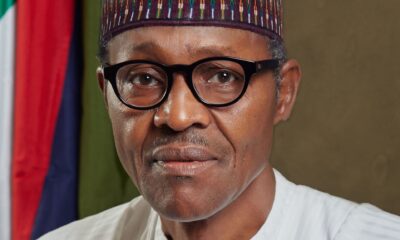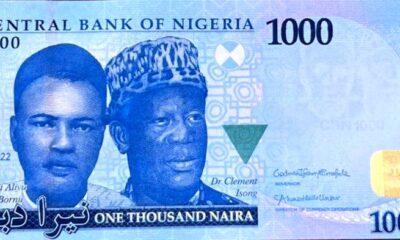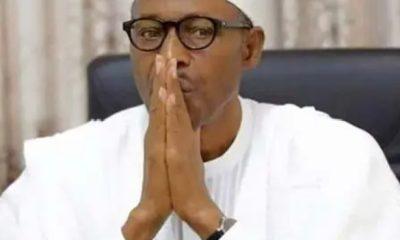Business
Knocks, Kudos Trail CBN’s Planned Redesign Of Naira Notes
Published
1 year agoon
By
Editor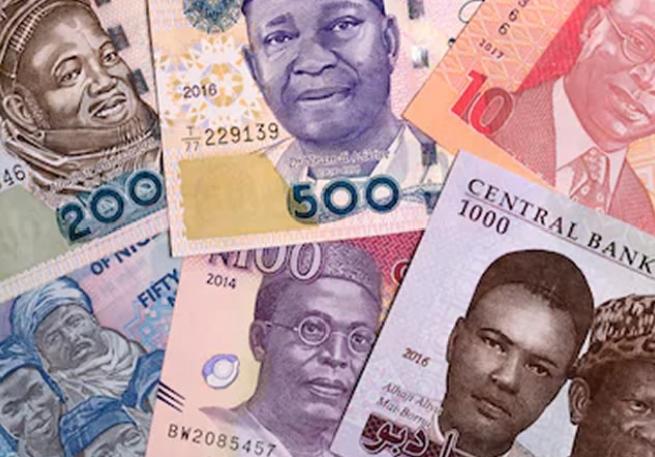
Financial experts and analysts have expressed mixed reactions over the proposed Naira notes redesign by the Central Bank of Nigeria (CBN).
Recall that the CBN, on October 26, made known its decision to redesign the N200, N500 and N1000 notes by December 15, 2022.
The apex bank added that the existing notes will no longer be regarded as legal tender by January 31, 2023.
Justifying the development, CBN Governor, Dr Godwin Emefiele, lamented that 85 per cent of the currency in circulation is being hoarded by Nigerians.
Emefiele added that the redesigning of Naira notes would help to curb counterfeit, as well as hamper ramson payment to terrorists and kidnappers.
CBN’s announcement has generated polarised reactions even within the government itself.
Minister of Finance, Budget and Planning, Zainab Ahmed became a known critic of the planned policy following her comment at the Nigeria Senate that she was not consulted.
READ ALSO: Buhari Declares Support For CBN’s Move Ro Redesign, Replace Naira Notes
Although President Buhari Muhammadu seems to have saved the situation when he stated that he backed the CBN on its move to redesign naira notes.
However, speakingon Monday, some financial experts described the Naira notes redesign idea as wasteful, without economic value, while others justified the move.
A Financial Inclusion/Wealth Management expert, Mr Idakolo Gbolade, said the decision will not positively lift the ailing Nigerian economy.
He explained that the pronoucement has further devalued the Naira against Dollar.
“The reasons given for redesigning the Naira notes regarding efforts to trace ransom payments or curbing counterfeiting may be germaine but it’s attendant cost could further increase inflationary pressures on the economy. This decision will not positively lift the economy.
“Presently the pronouncement has further devalued the Naira with its exchange rate going for N815/$ in the black market.
“The sudden change could be politically correct but economically damaging due to the short period of implementation which could cause upheavals in the financial system.
“This sudden rise is the exchange rate of Naira to US Dollars is largely due to massive request to exchange the Naira notes to dollars which has further increased the scarcity of dollars and put more pressure on the Naira thereby reducing our foreign reserves.
“The continous devaluation of the Naira will further hurt the economy and increase the cost of production and cost of living”, he stated.
READ ALSO: Naira Redesign Policy: Kidnappers Will Demand Dollars For Ransom – Gumi
On his part, the Chief Executive Officer (CEO), Centre for the Promotion of Private Enterprise (CPPE), Dr Muda Yusuf disclosed that the exercise has no monetary policy significance.
Muda added that the country can survive without such intervention rather CBN should devote its attention to solving the issue with liquidity in the foreign exchange market, Naira depreciation and soaring inflation.
In his words, “Currency as a percentage of money supply is less than seven percent. The exercise therefore has no monetary policy significance.
“Besides it will come with huge logistics costs, and avoidable dislocations to small businesses, most of whom are in the informal sector.
“This is one intervention we can do without. There are more urgent issues demanding the attention of the CBN. We have issues with liquidity in the foreign exchange market, the depreciating currency the recent Moody’s downgrade of nigeria, soaring inflation and many more.
“The CBN should save the citizens and the economy the trauma of this currency redesign. It is a distraction we can do without.”
Meanwhile, Professor of Management and Accounting, Lead City University, Ibadan, Godwin Oyedokun, said the move could help distort flow of illicit funds.
“Well, I have reviewed it, I actually do not have problem with it. I don’t have to support it because of the opinion of others, ones it is correct and according to the law, I will support it.
“I believe it is the right thing to be done. Like Buhari said, it is only those that have issue that will not support it. Some people said it will affect exchange rate, I don’t believe in this.
READ ALSO: Redesigning Naira May Worsen Forex Crisis, Ex-CBN Deputy Gov. Identifies Risk
“It can be used to distort the flow of illicit funds. If you don’t have business in holding dollars, you shouldn’t hold it. A lot of money will be in circulation now but it is temporary. I expect by January, February, another policy should come in, because one should not have any reason in holding cash. The cost of printing Naira is more; everybody will be ok without physical exchange of cash”, he said.
It was learnt that commercial banks have put forward measures to facilitate an easy cash collection process from depositors before the January deadline.
DAILY POST
You may like


Naira Redesign: Farmers Ask FG For Compensation Over Losses


Edo: Traders Reject Old Notes, Residents Groan Over Buhari’s Stance On S’Court Judgement


Naira Redesign: Four Days After, Commercial Banks In Benin Yet To Comply With Supreme Court Ruling


Supreme Court Nullifies FG’s Cashless Policy, Naira Redesign


Banks Resume Receiving Old N500, N1000 Notes


Buhari Apologises Over Naira Redesign Policy

The Central Bank of Nigeria (CBN) started fresh and direct sales of US dollars at N1,021 per dollar to Bureau De Change operators.
Nigeria’s apex bank disclosed this in a circular signed by its Director of Trade and Exchange Department Hassan Mahmud.
“We write to inform you of the sale of $10,000 by the Central Bank of Nigeria (CBN) to BDCs at the rate of N1,021/$1. The BDCs are in turn to sell to eligible end users at a spread of NOT MORE THAN 1.5 percent above the purchase price,” the circular posted on its website read.
READ ALSO: Tinubu Unveils African Counter-Terrorism Summit
“ALL eligible BDCs are therefore directed to commence payment of the Naira deposit to the underlisted CBN Naira Deposit Account Numbers from today, Monday, April 22, 2024, and submit confirmation of payment, with other necessary documentations, for disbursement of FX at the respective CBN Branches.”
CBN’s move is coming as the naira is recording a slight depreciation against the dollar after weeks of gains.
In late March, the bank also sold $10,000 to each of the eligible Bureau De Change (BDC) operators in the country at the rate of N1,251/$1.
READ ALSO: Mixed Reactions Trail Video Of Couple’s Customised N200 Notes
Like in the most recent sales, it warned BDCs against breaching terms of the dollar sales, vowing to sanction defaulters “including outright suspension from further participation in the sale”.
The fortunes of the naira have fallen sharply since President Bola Tinubu took over in May. Inflation figures have reached new highs and the cost of living hitting the rooftops.
Nigeria’s currency slid to about N1,900/$ some months ago at the parallel market. But in recent weeks, it has gained against the dollar.
The Nigerian authorities have also doubled down on their crackdown against cryptocurrency platform Binance and illegal BDCs.
On March 1, the CBN revoked the licences of 4,173 BDCs over compliance failures.
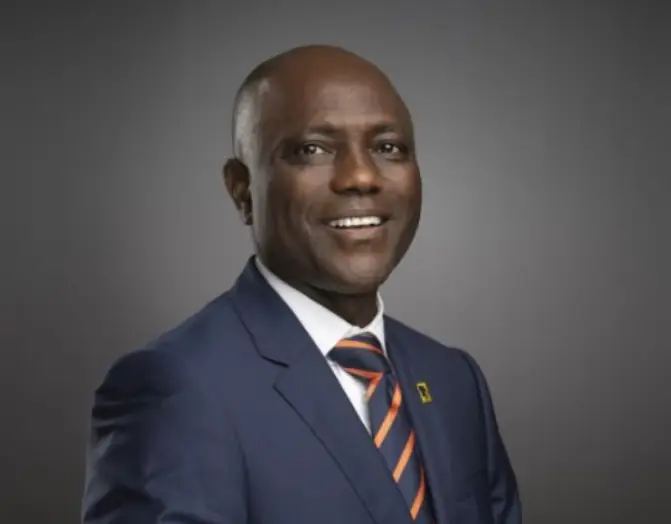
Olusegun Alebiosu has been appointed as the Acting Managing Director/Chief Executive Officer of First Bank of Nigeria Limited (FirstBank Group), effective April 2024.
Alebiosu steps into this pivotal role from his previous position as the Executive Director, Chief Risk Officer, and Executive Compliance Officer, a position he held since January 2022.
Alebiosu brings to the helm of FirstBank over 28 years of extensive experience in the banking and financial services industry. His expertise spans various domains including credit risk management, financial planning and control, corporate and commercial banking, agriculture financing, oil and gas, transportation, and project financing.
READ ALSO: JUST IN: Access Holdings Names New Acting CEO
Having embarked on his professional journey in 1991 with Oceanic Bank Plc. (now EcoBank Plc.), Alebiosu has held several notable positions in esteemed financial institutions.
Prior to joining FirstBank in 2016, he served as Chief Risk Officer at Coronation Merchant Bank Limited, Chief Credit Risk Officer at the African Development Bank Group, and Group Head of Credit Policy & Deputy Chief Credit Risk Officer at United Bank for Africa Plc.
Alebiosu’s academic credentials further enrich his professional profile. He is an alumnus of the Harvard School of Government and holds a Bachelor’s degree in Industrial Relations and Personnel Management. Additionally, he obtained a Master’s degree in International Law and Diplomacy from the University of Lagos, as well as a Master’s degree in Development Studies from the London School of Economics and Political Science.
READ ALSO: Meet Newly Appointed Union Bank CEO
A distinguished member of various professional bodies, including the Institute of Chartered Accountants (FCA), Nigeria Institute of Management (ANIM), and Chartered Institute of Bankers of Nigeria (CIBN), Alebiosu is renowned for his commitment to excellence and ethical practices in the banking sector.
Beyond his professional endeavors, Alebiosu is known for his passion for golf and adventure. He is happily married and a proud parent.
With Alebiosu’s appointment, FirstBank of Nigeria Limited anticipates continued growth and innovation under his leadership, reinforcing its position as a leading financial institution in Nigeria and beyond.
Business
CBN Gives New Directive On Lending In Real Estate
Published
1 week agoon
April 17, 2024By
Editor
The Central Bank of Nigeria, CBN, has released a new regulatory directive to enhance lending to the real sector of the Nigerian economy.
The directive, issued on April 17, 2024, with reference number BSD/DIR/PUB/LAB/017/005 and signed by the Acting Director of Banking Supervision, Adetona Adedeji, signifies a notable shift in the bank’s policy towards a more contractionary approach.
In line with the new measures, the CBN has reduced the loan-to-deposit ratio by 15 percentage points, down to 50 per cent.
This move aligns with the CBN’s current monetary tightening policies and reflects the increase in the Cash Reserve ratio rate for banks.
READ ALSO: JUST IN: CBN Gov Sacks Eight Directors, 32 Others
The LDR is a metric used to evaluate a bank’s liquidity by comparing its total loans to its total deposits over the same period, expressed as a percentage.
An excessively high ratio may indicate insufficient liquidity to meet unexpected fund requirements.
All Deposit Money Banks are now mandated to adhere to this revised LDR.
The CBN has stated that average daily figures will be utilised to gauge compliance with this directive.
Furthermore, while DMBs are encouraged to maintain robust risk management practices in their lending activities, the CBN has committed to continuous monitoring of adherence and will adjust the LDR as necessary based on market developments.
READ ALSO: JUST IN: CBN Increases Interest Rate To 24.75%
Adedeji has called on all banks to acknowledge these modifications and adjust their operations accordingly. He emphasised that this regulatory adjustment is anticipated to significantly influence the banking sector and the wider Nigerian economy.
The circular read in part, “Following a shift in the Bank’s policy stance towards a more contractionary approach, it is crucial to revise the loan-to-deposit ratio policy to conform with the CBN’s ongoing monetary tightening.
“Consequently, the CBN has decided to decrease the LDR by 15 percentage points to 50 per cent, proportionate to the rise in the CRR rate for banks.
“All DMBs must maintain this level, and it is advised that average daily figures will still be applied for compliance assessment.
“While DMBs are urged to sustain strong risk management practices concerning their lending operations, the CBN will persist in monitoring compliance, reviewing market developments, and making necessary adjustments to the LDR. Please be guided accordingly.”

PHOTOS: FCCPC Raids Supermarkets In Port Harcourt, Seizes Underweight, Re-bagged Rice

Outrage As Kingsmen Flogged Anambra Man To Death [VIDEO]

Man Declared Wanted For Stabbing Wife To Death, Attempted Murder of Two Children
Trending

 Entertainment3 days ago
Entertainment3 days agoBridesmaids’ Dance At Wedding Causes Stir On Social Media [VIDEO/PHOTOS]

 Politics4 days ago
Politics4 days agoEdo Guber: Akoko-Edo PDP Leaders Meet In Igara, Describe Ighodalo, Ogie As ‘Perfect Match’

 Metro3 days ago
Metro3 days agoVIDEO: ‘UNN Lecturer’ Caught Pants Down With Married Student

 News1 day ago
News1 day agoDrama! Supporters Of Yahaya Bello Perform Rituals to Prevent His Arrest By EFCC [Video]

 News2 days ago
News2 days agoVIDEO: Force PRO Orders Arrest Officers Caught On Video Bashing Driver’s Car

 Headline2 days ago
Headline2 days agoDrama As Women Fight Dirty, Breasts Fall Out During Spring Break Outing In US [PHOTOS/VIDEO]

 News4 days ago
News4 days agoOutrage As Chinese Supermarket In Abuja Denies Nigerians Entry

 News3 days ago
News3 days agoIGP, Jonathan Disagree Over State Police

 Entertainment2 days ago
Entertainment2 days agoNollywood Actor, Zulu Adigwe Is Dead

 Metro1 day ago
Metro1 day agoEdo Cultists Kill Rival In Daughter’s Presence, Abandon Getaway Car
